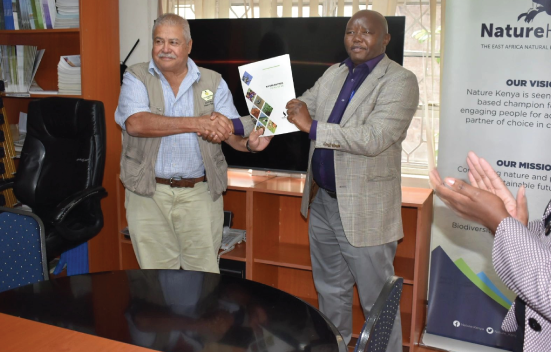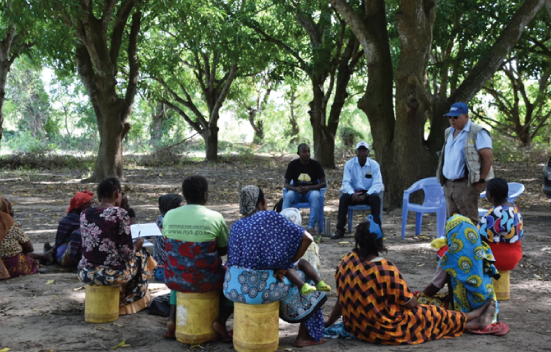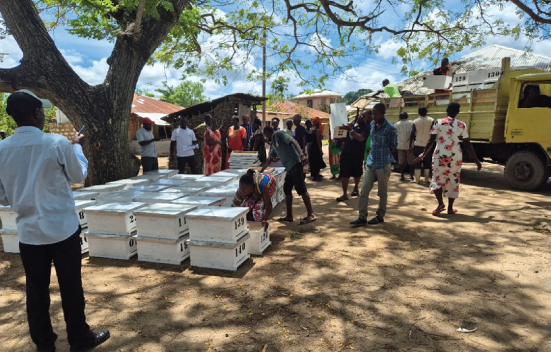Since 2008, Nature Kenya has been actively engaged in the Tana Delta, with a primary focus on conserving the delta basin. As part of their efforts, the organization also assists local conservation groups by supporting their income-generating projects. These groups, rooted in the conservation of the fragile Delta ecosystem, work towards preserving its natural resources while enhancing their livelihoods.
Beekeeping is one of the dominant and widely practiced activity among the local communities in the Tana Delta, traditionally carried out using log hives and through honey hunting and gathering from the wild. To improve this practice, Nature Kenya, along with other donor organizations, has provided hundreds of modern frame hives to support and enhance local beekeeping efforts.
Despite the introduction of modern frame hives, most local communities in the Tana Delta continue to rely on traditional beekeeping methods. Combs are often cut directly from the frames, including from the brood frames, and the super boxes remain largely unused. Although donor projects have provided honey extractors (centrifuges), these machines are rarely, if utilized at all. Instead, the common method of processing honey involves mushing the combs and filtering the honey through sieves, reflecting the continued reliance on older techniques compromising on the quality.
Through continuous follow-up, monitoring, and interactions with the beekeeping groups, Nature Kenya (NK), using insights from an Organizational Capacity Assessment (OCA) conducted, identified a significant gap in expertise and knowledge related to modern beekeeping with frame hives. To gain a deeper understanding of these challenges, NK, in partnership with African Beekeeping Limited (ABL), conducted a baseline survey. This survey further highlighted issues not only in technical skills but also in honey marketing and hive management.
At that point, Nature Kenya decided to establish a Memorandum of Understanding (MOU) with African Bee Keeper to adopt a more commercial approach. The aim was to enhance honey production and create a sustainable market for high-quality honey, ensuring that the beehive beneficiaries could generate income from the beekeeping project.
Guardians of The Tana Delta: Building Sustainable Legacies

ABL Managing Director Mr. Ernest Simeoni with NatureKenya Executive Director Dr. Paul Matiku during a partnership signing ceremony

Meeting with community group in the Tana Delta to discuss the proposed African Beekeepers / NatureKenya partnership pilot bee keeping project.


